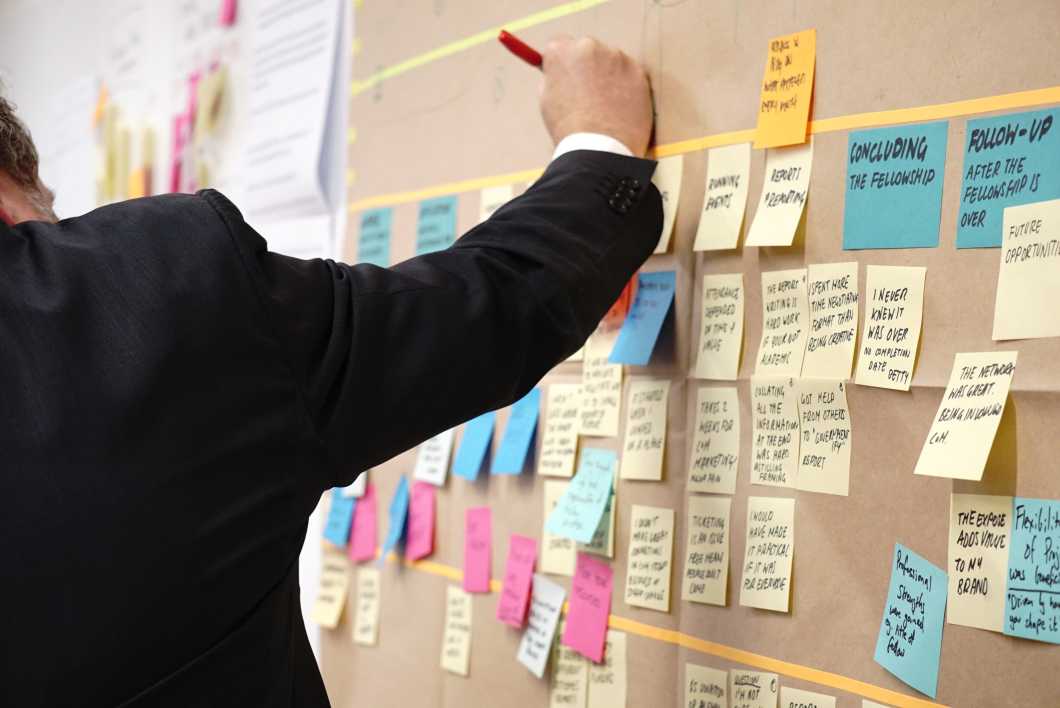Project Management Methodologies and 10 Best Project Management Software of 2023
BySarah Harris
Sarah Harris takes care of the customer support requests at Workast. She is also an avid writer.

Sarah Harris takes care of the customer support requests at Workast. She is also an avid writer.
Project management is a crucial discipline that helps organizations plan, execute, and control projects to achieve specific goals within set constraints. There are various types of project management methodologies and approaches, each suited to different project requirements, industries, and organizational structures. In this article, we will explore some of the common project management methodologies, their applications across different industries, and other important considerations.
The Waterfall methodology is a sequential, linear approach to project management. It follows a structured flow from initiation to closure, with distinct phases such as requirements gathering, design, development, testing, and deployment. This methodology is ideal for projects with well-defined objectives and stable requirements, such as construction, manufacturing, and infrastructure development.
Agile project management is an iterative and flexible approach that emphasizes collaboration, adaptability, and continuous improvement. It involves breaking projects into smaller increments called sprints and prioritizing customer satisfaction through early and frequent product delivery. Agile methodologies like Scrum and Kanban are widely used in software development, IT, marketing, and creative industries.
The Lean methodology focuses on maximizing value while minimizing waste. It originated from the manufacturing industry but has been adopted in various sectors. Lean project management aims to identify and eliminate activities that do not contribute to the end goal, streamlining processes for efficiency and effectiveness. This approach is particularly valuable in industries like healthcare, logistics, and supply chain management.
Six Sigma is a data-driven methodology that aims to minimize defects and improve quality in project deliverables. It utilizes statistical analysis and process improvement techniques to achieve near-perfect performance. Six Sigma is commonly used in industries where quality control is critical, such as manufacturing, healthcare, and financial services.
PRINCE2 (Projects in Controlled Environments) is a process-based project management methodology widely used in the United Kingdom and other countries. It provides a structured framework for managing projects, focusing on business justification, defined roles and responsibilities, and effective communication. PRINCE2 can be applied to various industries and projects of different sizes and complexities.
The Critical Path Method is a technique used to schedule and manage activities in a project. It identifies the longest sequence of dependent activities, known as the critical path, which determines the project's overall duration. CPM is commonly used in construction, engineering, and other industries where project scheduling is critical.
The Event Chain Methodology focuses on managing uncertainties and risks in projects. It analyzes potential events or risks that could impact project schedules and resources, and develops strategies to mitigate or respond to them. This methodology is particularly useful in industries where projects are subject to high levels of uncertainty, such as event planning, research and development, and technology innovation.
In addition to the above methodologies, hybrid approaches have gained popularity in recent years. These methodologies combine elements from different methodologies to create a tailored approach that suits the specific needs of a project or organization. For example, organizations may combine Agile and Waterfall methodologies to leverage the strengths of both approaches.
It is important to note that the choice of project management methodology depends on factors such as project size, complexity, industry, team dynamics, and organizational culture. Project managers must evaluate these factors and select the most appropriate methodology to ensure project success.
In today's fast-paced and competitive business landscape, effective project management is crucial for organizations to stay ahead. As we delve into 2023, project management software continues to evolve, offering innovative features and functionalities to streamline workflows and enhance productivity. In this article, we will explore the top 10 project management software tools of 2023, taking into consideration their features, ease of use, scalability, and overall value for businesses of all sizes.
Asana remains a leader in the project management software domain with its user-friendly interface and powerful collaboration features. With its Kanban-style boards, Gantt charts, and customizable workflows, Asana allows teams to plan, track, and execute projects seamlessly. It offers integration with various tools and platforms, making it an excellent choice for teams across different industries.
Monday.com has gained popularity for its intuitive interface and extensive customization options. Its visual project boards and drag-and-drop functionality enable teams to manage tasks effortlessly. Monday.com also offers automation features, time tracking, and collaboration tools, making it ideal for both small teams and large enterprises.
Trello's simple yet effective approach to project management has made it a favorite among many organizations. With its card-based system and visual boards, Trello allows users to prioritize tasks, set due dates, and collaborate in real-time. It offers integrations with popular third-party apps, making it a versatile choice for managing projects across different domains.
Jira is a comprehensive project management software widely used in the software development industry. With its robust issue tracking and agile project management capabilities, Jira enables teams to plan, track, and release software products efficiently. It offers various extensions and plugins, allowing customization to suit specific project requirements.
Wrike is a feature-rich project management tool that provides end-to-end visibility and collaboration for teams. Its dynamic dashboards, task dependencies, and real-time updates make it a powerful solution for managing complex projects. Wrike also integrates seamlessly with popular business tools, enhancing productivity and efficiency.
Microsoft Project remains a popular choice for enterprises due to its extensive set of project management features. With its Gantt charts, resource allocation, and budget tracking capabilities, Microsoft Project offers comprehensive project planning and execution tools. It integrates well with other Microsoft products, providing a seamless experience for users.
Workast is a comprehensive project management software that offers a range of features and tools to enhance productivity and collaboration within teams. With its user-friendly interface and robust functionality, Workast helps streamline project workflows, improve communication, and increase overall efficiency.
One of the key strengths of Workast is its task management capabilities. Users can create and assign tasks, set due dates, and track progress all in one place. The intuitive task management interface allows team members to easily organize and prioritize their work, ensuring that deadlines are met and projects stay on track. Additionally, Workast offers various task views, such as Kanban boards and list views, which provide flexibility in visualizing and managing tasks based on individual preferences.
Another noteworthy feature of Workast is its integration with popular communication tools like Slack. By seamlessly integrating with Slack, Workast enables users to create tasks directly from Slack channels or conversations, making it convenient to capture action items and assign tasks without switching between different platforms. This integration fosters efficient collaboration by centralizing project-related discussions and task management in one location.
Smartsheet combines project management and spreadsheet functionalities to provide a unique project management experience. With its familiar spreadsheet interface and powerful automation capabilities, Smartsheet allows teams to plan, track, and report on projects efficiently. It also offers integration with popular business tools, enhancing cross-functional collaboration.
Teamwork offers a comprehensive suite of project management tools designed to streamline team collaboration. With features such as task management, time tracking, and document sharing, Teamwork enables teams to work cohesively and deliver projects on time. It also provides integration options, making it adaptable to various project requirements.
Zoho Projects offers a robust set of project management features combined with extensive integration capabilities. Its intuitive interface, task dependencies, and resource management tools make it suitable for teams of all sizes. Zoho Projects also provides collaboration features, enabling seamless communication among team members.
Project management methodologies play a vital role in effectively executing projects across various industries. Whether it's the sequential nature of Waterfall, the adaptability of Agile, or the efficiency of Lean, each methodology offers unique advantages and can be applied to different types of projects. By understanding these methodologies and their applications, project managers can make informed decisions and increase the likelihood of project success.

